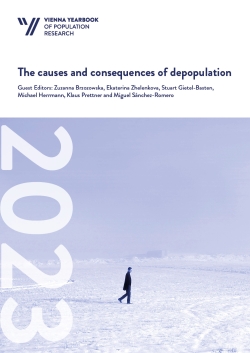
Vienna Yearbook of Population Research 2023, pp. 69, 2023/04/19
The causes and consequences of depopulation

Much of East Central Europe today faces the double challenge of having a population that is both ageing fast and shrinking steadily. Elderly-oriented political dynamics and myopic governance are part of this predicament, and are also among the reasons why future prospects are not rosy. Having started the post-communist transition with younger populations, successive governments in this region have comprehensively squandered a decades-long window of opportunity to adapt their policies to the predicted ageing ahead (Vanhuysse and Perek-Bialas, 2021). Especially in Hungary, Poland, Czechia, the Slovak Republic, Romania and Bulgaria, this failure is reflected in low active ageing and child well-being index rankings, low levels of social investment and mediocre educational outcomes, and family policies that reinforce traditional motherhood roles or barely support parents at all. Poland, Romania, Croatia, Hungary and, especially, the Baltic states also experienced large-scale emigration (‘young exit’). Slovenia and the Visegrad Four, but not the Baltics, became premature pensioners‘ democracies characterised by unusually high levels of pro-elderly policy bias (‘lopsided loyalty’). While the salience of family policies increased around the time the demographic window closed, this shift was driven by pro-natalist, neo-familialist and gender-regressive political ideologies, rather than by a concerted effort to boost human capabilities or reward social reproduction. But by then, elderly voter power (‘grey voice’) in East Central Europe was among the highest in the world. Politics strongly constrains the likelihood of appropriate human capital-boosting policy responses to the region’s population predicament. Alarm bells thus ring for a generational contract under pressure and for longer-term societal resilience.
Keywords: pro-elderly policy bias; social reproduction; generational contract; pensioner democracies; welfare state resilience; social investment; political demography